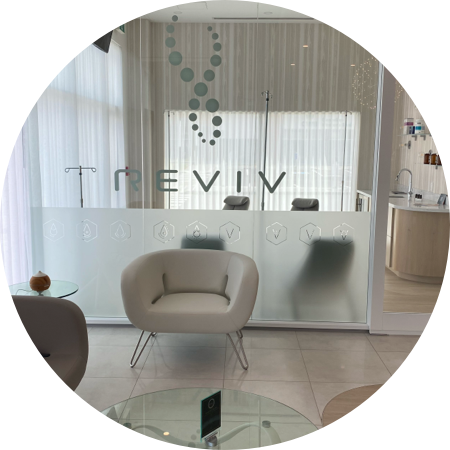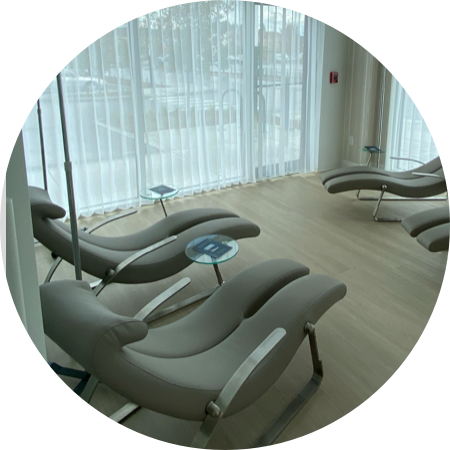Congenital Heart Disease, or CHD, is a complex medical condition that affects newborns and infants. But it can be difficult to tell what precise factors cause congenital heart disease to develop. Is it genetic or environmental?
Both genetics and environmental factors can play a part in how likely a child is to be born with congenital heart disease. If one or both parents have a family history of this condition, their child is much more likely to experience congenital heart disease. Meanwhile, if a mother has unhealthy lifestyle habits or surrounding environmental factors, it can affect how likely the child is to be born with this condition.
However, it can be difficult to determine whether or not a child is likely to be born with CHD, even when considering these factors. This is when it can be beneficial to think about DNA and genetic testing so an experienced team of professionals can examine your genes to help determine the likelihood of your child developing congenital heart disease. DNA testing is offered at some medical cosmetics clinics.
What Is Congenital Heart Disease?
Congenital heart disease (CHD), also called congenital heart defects, is a group of conditions that directly affect the heart from birth. This term is used to describe situations where there’s a problem with how the heart is structured.
Unlike many heart diseases that develop later in life, congenital heart disease begins to develop while a person is still a fetus. Structural abnormalities begin to develop, affecting parts of the heart seemingly at random.
This means that there may be problems with the walls of the heart, the valves, or the blood vessels. They may be shaped incorrectly, be the wrong size, or have defects that make it much harder for the heart to do its job.
Is a Congenital Heart Defect Serious?
The heart is one of the most essential organs needed for the human body to stay alive, and any time a problem develops in this organ, it should be considered serious. However, in some situations, the defects may be so mild that they can’t directly impact a person’s health.
Some defects that can develop due to CHD can completely disrupt how blood flows to, through, and from the heart. Your circulatory system can be directly affected, which can cause extra strain on your heart. Depending on the type and severity of the defect, symptoms can begin at any point, making it crucial to receive an early diagnosis.
The symptoms often experienced by a child with CHD include:
- A rapid heartbeat
- Quick breathing
- Swelling in the legs and around the eyes
- Extreme fatigue and tiredness
- A blue tinge to the skin or lips
- Slower growth and overall development
However, these symptoms don’t only occur in children. Heart defects may lay dormant for some time and can surface in teenagehood or adulthood. For example, as you get older, it’s common to begin developing hypertension (high blood pressure) caused by CHD.
Is Congenital Heart Disease Genetic?
Congenital heart disease is a complicated and serious medical condition. However, while the exact causes aren’t fully understood, genetics do play an important part in the puzzle.
There are specific genes or genetic mutations that can increase the likelihood of heart defects being passed from parents to their children. If one parent was born with CHD, there’s a higher chance of it being passed down to their children.
It’s important to note, though, that this pattern isn’t guaranteed. Sometimes, a single gene passed from one parent to their child is enough to cause a heart defect—in other situations, multiple genes can contribute to the likelihood of CHD developing.
DNA Testing for Genetic Congenital Heart Disease
It can also be beneficial to think about DNA and genetic testing if you’re worried about your child’s development. Since genetics play an important role in a person’s likelihood of developing a congenital heart defect, DNA testing can be an excellent way to determine how likely your child is to experience this condition.
However, genetics is just one piece of the puzzle. If one or both parents have CHD, it isn’t guaranteed that their child is going to develop the same condition.
What Environmental Factors May Cause a Congenital Heart Disease?
There’s a wide range of factors that can contribute to how likely a person is to develop complications from CHD. Usually, these are factors that affect the mother while pregnant, like:
- Overall Health
- Diabetes or Other Chronic Illnesses & Conditions
- Lifestyle Choices: If the mother smokes, drinks, or uses any form of harmful substance while pregnant, their child has a significantly increased chance of developing a heart defect.
- Diet & Nutrition: Nutritional deficiencies, like a lack of folic acids, may be linked to an increased risk of dealing with CHD.
- Stress Levels: Periods of chronic or prolonged stress during pregnancy may have an effect on the child’s development.
It’s also believed that certain medications can negatively affect a fetus’s development. These often include:
- Lithium-based medicines (often used to treat bipolar disorder)
- Blood thinners
- Some acne medications
- Some antidepressants
However, none of these are guaranteed to negatively affect a child while they’re developing. If you’re using any of these medications, you should speak with your healthcare professional as soon as you can so they can explain any potential side effects.

Can Genetic Testing Determine If a Child Will Be Born Healthy?
The factors involved in how likely a child is to be born with CHD make it a complex situation. While you can’t receive an exact answer on the health of your child, DNA and genetic testing can examine how your genes may affect your child. To schedule an appointment for DNA testing with the friendly and professional team at Zulu Medical Cosmetics, request an appointment on our website.
Medical Aesthetic Services in Calgary
Zulu Medical Cosmetics is here to answer your questions about the benefits of DNA testing and to discuss how it relates to congenital heart disease. To have your DNA tested and learn more about the benefits of this process, book an appointment with us at Zulu Medical Cosmetics today.















